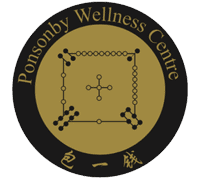
In an example that communication is proving as difficult as containment in the current coronavirus outbreak, China’s state media reported, to increasing scepticism, traditional Chinese medicine (TCM) oral liquid could inhibit the new coronavirus.
(check out our Chinese herbal medicine services)
On Jan. 31, China’s state press Xinhua published an article that claims that the Shanghai Institute of Materia Medica (SIMM, under the Chinese Academy of Sciences) and the Wuhan Institute of Virology had discovered that the Shuanghuanglian oral liquid could be used to “inhibit” Covid-19.
Made from a blend of honeysuckle, Chinese skullcap and forsythia, Shuang Huang Lian is believed to be antiviral, antibacterial and good for the immune system; thus, it is often used to relieve symptoms such as fever, cough and sore throat. The report caused panic buying of the TCM both online and in brick-and-mortar pharmacies in the country. However, the statement was also met with a wall of scepticism from both the general public and doctors. To address their concerns, SIMM released a statement on Feb. 1 to verify the Xinhua report, while saying that the conclusion is based on “the results of the laboratory in vitro studies” and “further clinical studies are needed to confirm it.”
“I think it’s very irresponsible for a research institute to release a statement only based on a simple in vitro test where they would put the extracted viruses in Shuang Huang Lian liquid and check their survival rate afterwards,” said Shi Lichen, founder of Beijing Dingchen Pharmaceutical Management Consulting Center. “Because there are so many reasons why virus couldn’t survive – being away from a host, for example, could lead to the natural death of the virus – so how do we know that it was the TCM that was actually working?”
“Plus the content of TCM is much more complicated,” he told BioWorld. “There are so many ingredients in Shuang Huang Lian, how would we know which ones are actually working?”
She noted that the result of in vitro tests should not be regarded as a guideline for clinical research. The only way to confirm the efficacy of a Meds is by its clinical performance.
“The central government is working on collecting clinical data and they should release a nationwide statement soon,” he said.
“And it should always be the central government that releases a statement like this instead of an individual local institute.”
She said that there is yet to be sufficient evidence to prove that any herbal remedy could kill viruses, but this is not the first time TCM is linked to the cure for a deadly virus.
In 2003, SIMM took the lead in confirming that Shuanghuanglian oral liquid has anti-SARS coronavirus effect. And in the decade following the SARS outbreak, a team from the institute conducted numerous researches and confirmed the TCM’s efficacy against influenza virus (H7N9, H1N1, H5N1), SARS-CoV and Middle East respiratory syndrome coronavirus (MERS), reporting obvious antiviral effects.
In the paper, titled “Study Progress on Antiviral Activities and Mechanisms of Flavonoids in Traditional Chinese Medicine and Natural Medicines,” authored by researchers from the Department of Pharmacy at Tongji Hospital, which is affiliated to Tongji Medical College of Huazhong University of Science and Technology in Wuhan, it is also mentioned that flavonoid extracted from litchi seeds can inhibit the proteinase activity of SARS-CoV3CL for its viral protein synthesis, which makes it a potential treatment for SARS.
“People are starting to go to TCM because there are no Western Meds available yet,” said He Gongxin, former chief representative of the Shanghai office at Gilead Sciences Inc., whose NUC inhibitor, remdesivir, had just entered a phase III trial in China for fighting the Covid-19.
“I’m not against Shuang Huang Lian. You can drink it; I don’t think it’s harmful to you because it’s just sugar water,” said He.
In another article on Feb. 3, Xinhua said that eight patients infected with the novel coronavirus (2019-nCoV) had been “cured by TCM or a combination of TCM and Western medicine in Jinyintan Hospital in Wuhan, epicentre of the coronavirus outbreak.” It goes on to say that this is the first batch of patients, of whom six were in critical condition, cured by such treatment.
Xinhua reported that the patients were treated by TCM doctors from Beijing’s Xiyuan and Guang’anmen hospitals, both under the China Academy of Chinese Medical Sciences, who have been looking after patients in Wuhan since Jan. 28.
